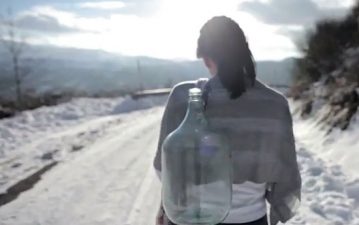 The Alliance of Religions and Conservation has launched a special water conservation guide aimed at Muslim women and families
The Alliance of Religions and Conservation has launched a special water conservation guide aimed at Muslim women and families
Every year at Hajj, Muslims commemorate the struggle of Hajjar; an Egyptian hand-maid and second wife of the Prophet Ibrahim [pbuh] who was stranded in the desert without water for her child. The hajj pilgrims walk, as she did, between two mountains in the Saudi Arabian wilderness known as Safa and Marwa to remember her search for water. To mark the significance of this event, the Alliance of Religions and Conservation has launched a special water conservation guide which focuses on the story of Hajjar, to accompany its Green Guide to Hajj.
Embracing The Influence Of Muslim Women
The guide uses the story to emphasize the preciousness of water and the need for all Muslims to think more carefully about their water use. It highlights the importance of water in Islam and how the Prophet Muhammed [pbuh] asked his followers to conserve it even if it was available in abundance.
What is particularly unique about this water conservation guide, however, is its focus on women and family learning. Writing in the guide, Dr Husna Ahmed who we interviewed on Green Hajj, says: “The booklet relates the story of Hajjar (r.a) to emphasize the important role that Muslim women play in Islam and how we should not ignore our duty to protect the planet for our children and future generations… We as Muslim women should act out of love, not fear. I hope we can all confront the challenges that climate change brings forth with a sense of love, compassion and humanity for each other.”
Share With Your Family & Change Their Habits
[youtube]http://www.youtube.com/watch?v=S2tDhldp2fw[/youtube]
The team behind the guide have put together a great little video aimed at young families which tells the story of Hajjar and explains why we need to conserve water in clear and accessible terms. The guide also puts forward some practical suggestions to help Muslim families save water. These include recycling water, having shorter showers, using tap water rather than bottled water and also performing the wudhu (ablution before prayers) using water from a small bucket rather than allowing the water tap to run.
Whilst the guide reminds us that the responsibility to care for the planet falls on us all equally, it asks Muslim women to exert their influence and help spread the message of water conservation. As Dr Husna puts it in the guide, “If we take up the baton for environmental change and pass it on to our immediate families, do you know what an enormous impact we can have? Families all around the world will start to think about our environment and the small changes each family make will be multiplied as whole communities and societies are influenced by changes started by YOU.”
:: Download Islam and Water: The Hajjar (ra) Story and Guide.
For more on water conservation and Islam see:
How Islam Could Help Fight Water Scarcity
Aflaj: Ancient Channels Keep Water Flowing In the Desert
Believers Can Save One Million Gallons Of Water



